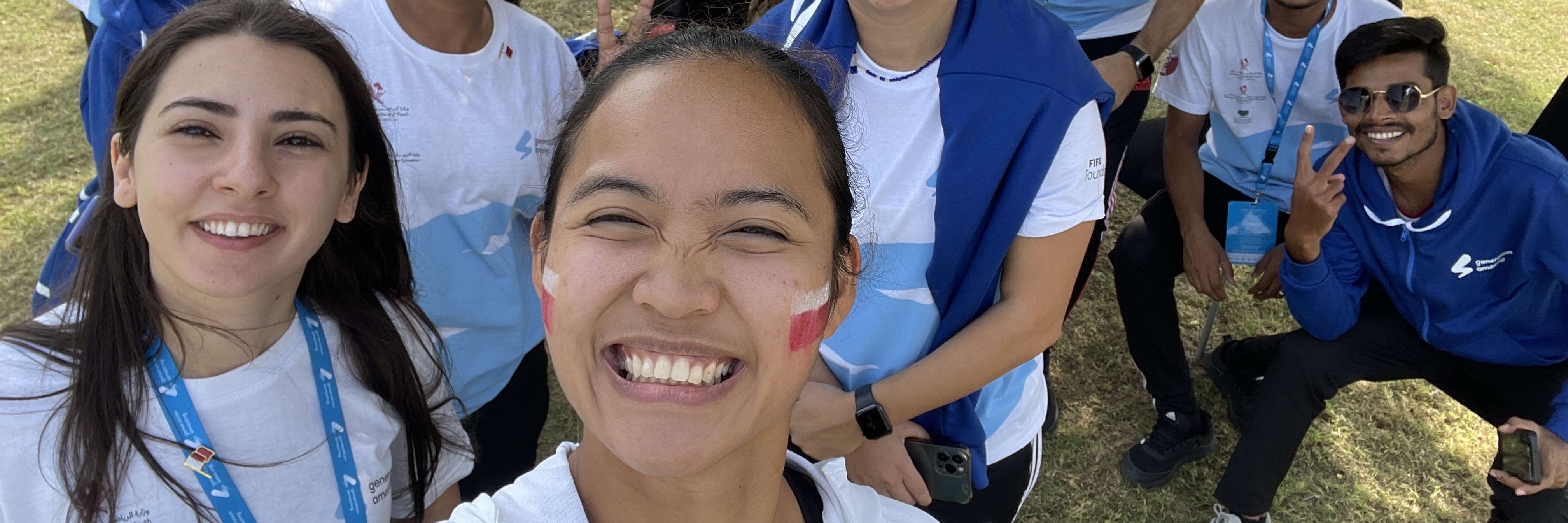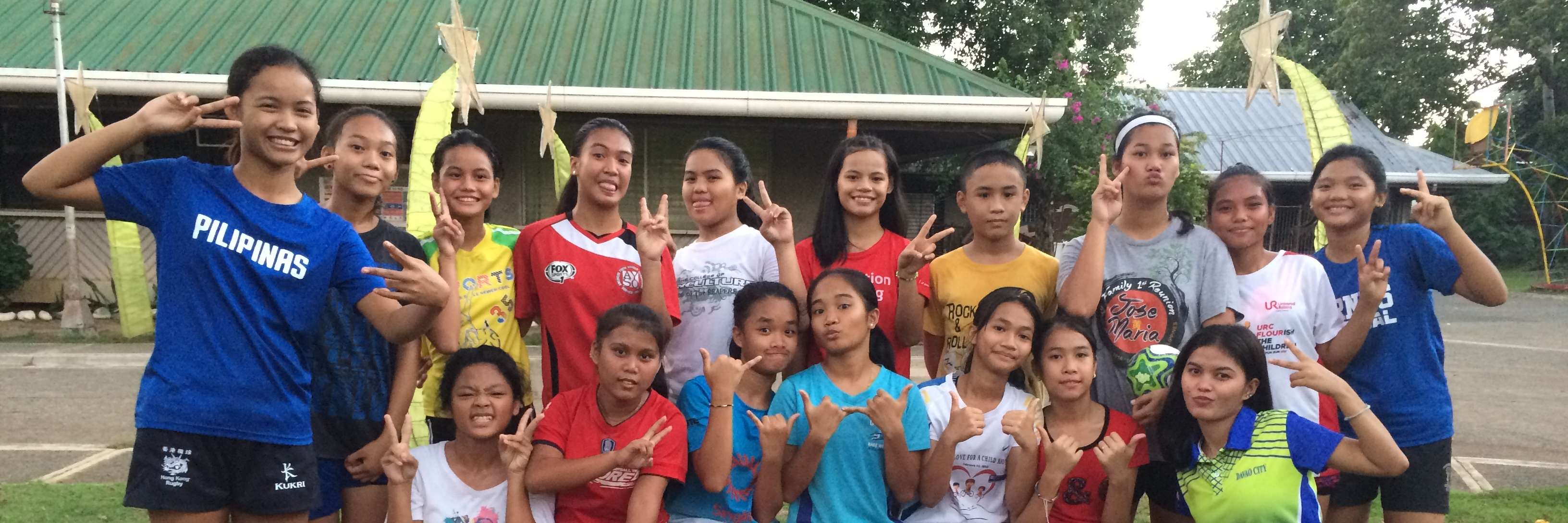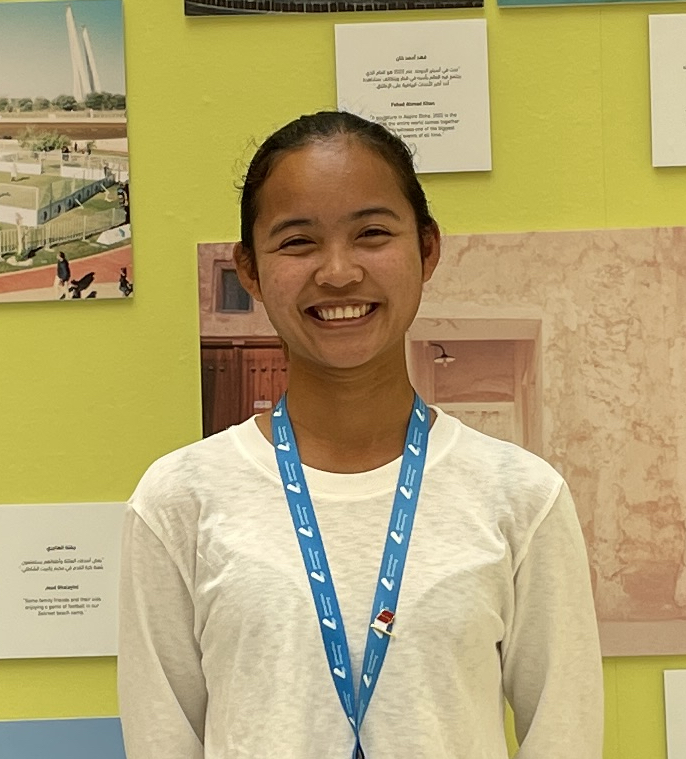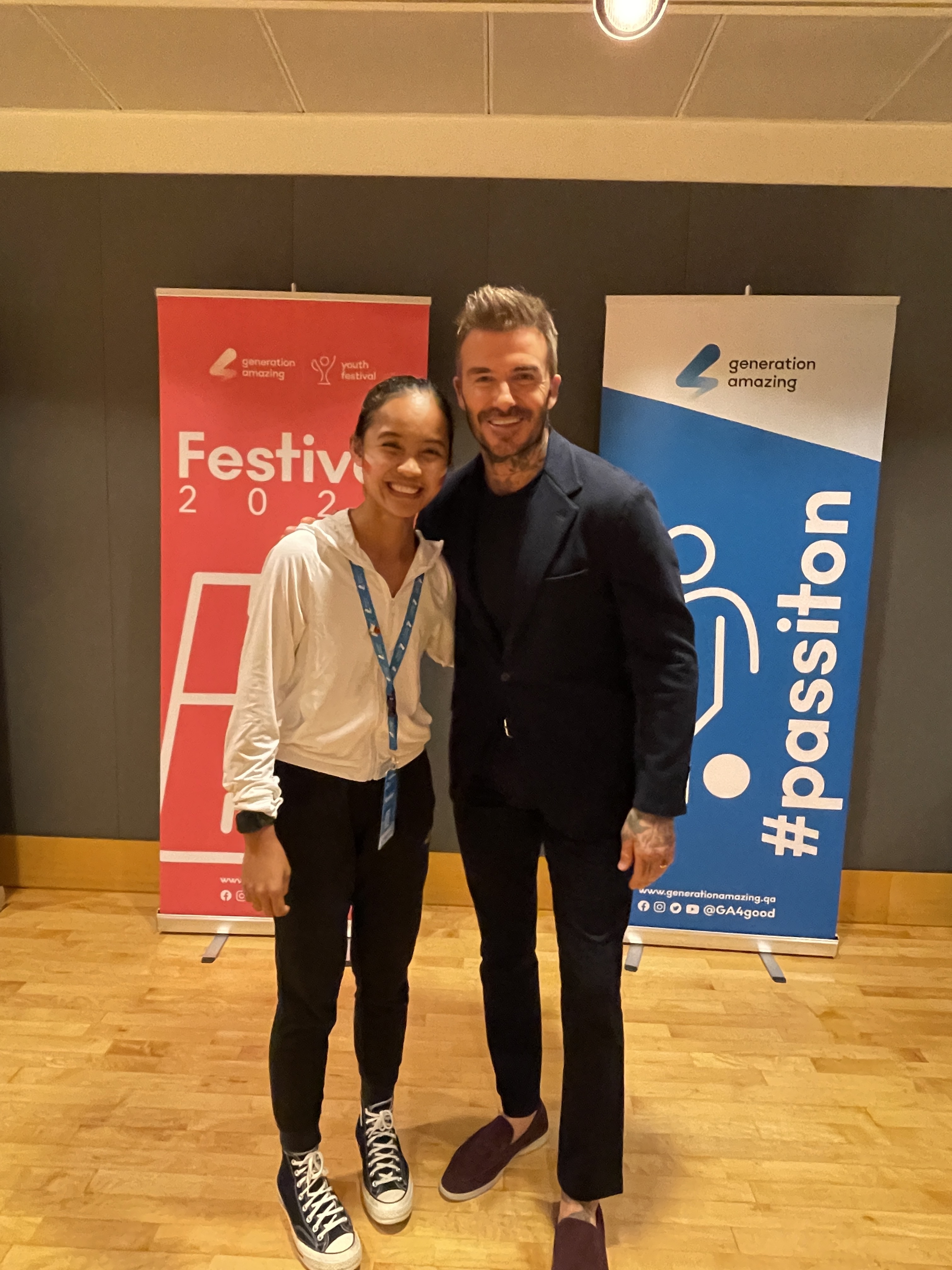
“Even though we were from different countries, we all had similar experiences, like living on the streets and in poverty,” explains Angela. “We didn’t just play there, we also discussed global issues that our communities were facing.”
After hearing her deliver a passionate speech about poverty and drug issues at the conference in Russia, Angela’s coach encouraged her to apply to become a youth advocate for the Generation Amazing Foundation (GA). One week later, her application was accepted and her journey from player to coach and advocate began.
“Before joining Generation Amazing in 2018, I was just a player. I had the experience of playing but I didn’t have the responsibility of coaching, especially kids,” explains Angela.
In 2019, Angela travelled to Doha for GA’s first annual Youth Festival, in order to learn about football for development, share her own experiences, and hear from other youth and young adults who had already begun delivering impactful community initiatives.

“After meeting my co-advocates at the Youth Festival in Doha, who were all older than me and had already started coaching and implementing their programs, I was inspired. These people had already done so many amazing things in their communities. Why not me? It really helped boost my confidence to coach and to help the hundreds of kids in my community. I felt empowered to make a difference.”
When she returned to the Philippines, Angela began implementing what she learned through GA’s football for development programme. She became the head coach at the SOS in Davao and began tapping other volunteers to help teach the younger kids. “There are over 100 kids who are very keen to play football but there was no one that could help guide or coach them. That’s the time I chose to step up,” she explains.
Empowering youth with the skills they need to boost their own futures and to “pass it on” to their communities is at the core of GA’s mission. Angela, who is now completing her international baccalaureate in Hong Kong on scholarship, is continuing to pass it on even away from her home in the Philippines.
“Being in Hong Kong is a huge opportunity for me because education is my only path to getting out of poverty,” she explains. “Every Sunday, I volunteer as a rugby coach for domestic workers here in Hong Kong, a lot of whom are Filipino migrant workers. They don’t have other outlets to play the sport; I feel like our experiences are quite similar.”


